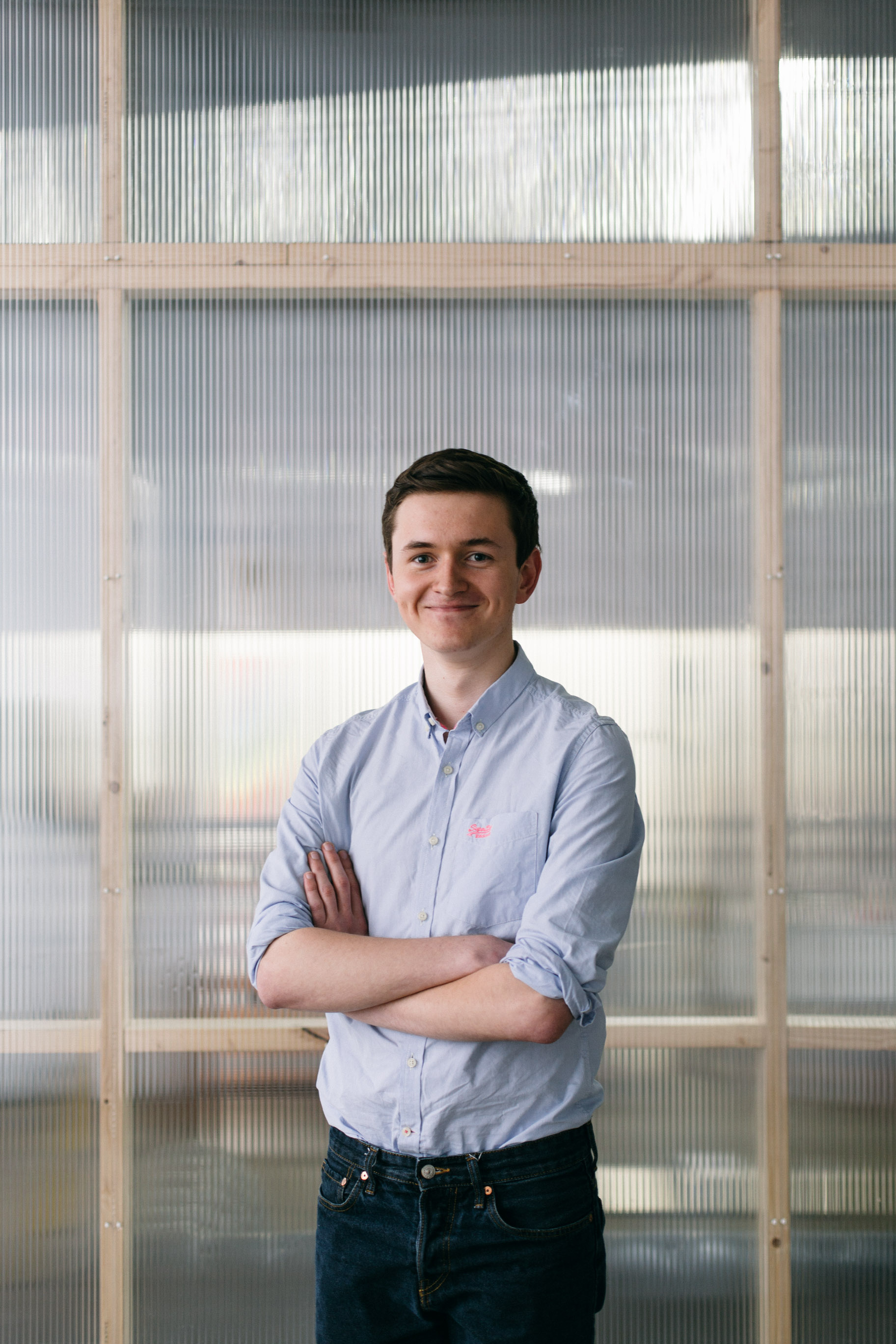
The stereotype of teenagers being hopeless, grumpy losers couldn’t be more out of date. We meet the new breed of entrepreneur
In Pennsylvania, US, Neha Gupta, then nine years old, earned her first $800 for charity by selling her toys at a garage sale. Now 19, and the founder and CEO of the not-for-profit organisation Empower Orphans, she has raised more than $1.5 million to help 25,000 children in India. In London, Nick D’Aloisio made headlines two years ago when he sold his news app Summly to Yahoo for $30 million. He was 17 at the time. Tavi Gevinson started a fashion blog when she was 12. At 19, she is a magazine editor, actress, model and consultant, with plenty of other roles besides. The New York Times recently labelled her a ‘multihyphenate’. In restaurants throughout the United States, Flynn McGarry, a chef, hosts pop-up events for diners paying up to $180 each to try his langoustine tartare or Champagne- fermented turnips. McGarry began cooking for paying guests out of his mother’s Studio City, California kitchen when he was 12; he’s 16 now.
As tween and teenage members of generation Z – young people born between 1994 and 2010 – continue to develop apps, launch million-follower vlogs, create fashion collections and form not-for- profit groups, we’re likely to see more of these multihyphenates make the news. Together, they increasingly give form to the notion that today’s teenagers are an ambitious, industrious, audacious bunch; an enterprising generation set to change the face of education, politics, society and the economy as we know it.
Florent Derue, 18

Activism is generally associated with students and older generations, but teens are now more politically aware than ever before. One of these engaged teens is Florent Derue, an 18-year-old from Paris who, along with fellow school pupil Valentin Reverdi, founded news website Newsyoung.
Launched in 2013, Newsyoung takes a youth- focused approach to politics, society and the economy. It was founded to bring together young writers and observers who had an interest in global issues but felt mainstream media wasn’t responding to their needs. Today, the Newsyoung platform has more than 50 members aged between 15 and 17, and is the world’s first global network of young journalists.
The small group of teenagers that started Newsyoung had to adapt quickly. “With no background in anything we had to learn by ourselves,” recalls Derue. “I had no clue what Wordpress or a PHP server was. But in a few weeks, thanks to websites and Youtube videos, I launched a website for the first time.”
The internet has undoubtedly given this generation of teens a huge advantage over their predecessors, but that doesn’t mean that they haven’t had to overcome obstacles. One hurdle that youth has always faced is being taken seriously.
“Age is still seen as a form of weakness for some,” asserts Derue. “I was only 16 when I launched Newsyoung, I had to face lots of criticism from people who believed that without a degree, you can’t lead a media company.”
Are attitudes towards the teen entrepreneur changing? Derue believes they are. “Diversifying qualifications and meeting people are now a common thing for young people,” he says. “I think that teenagers are more aware about how the world works, and have a better understanding of how to get things done.”
“Young people know they are staring down the barrel of a series of badly paid internships to find a job that no longer holds the promise of lifetime security”
James Anderson, 17

“I started coding at the age of seven,” says Thinkspace and Space Lounges founder James Anderson, crediting an insatiable curiosity for how websites and applications are built as the kick-start for his career. “I’m fascinated by how we can create something from nothing and how that something can have a profoundly positive effect on people’s emotions.”
Making something out of nothing is a good way to sum up Anderson’s career. Self-taught and astoundingly motivated, Anderson has completed secondary school, delivered a TEDxTeen talk and is now managing director and founder of two separate businesses, both of which have attracted support from high-profile names such as Richard Branson, Stephen Fry and Steve Wozniak.
Thinkspace, his first venture, set up in 2013, is a collection of beautifully designed spaces in schools around the world where students can learn how to code in an inspiring and engaging environment. Two years later Anderson embarked on Space Lounges, a next-generation café that aims to use tech to streamline the coffee-shop experience – no queues, no cash, everything is done via an app.
“Young people are beginning to see their peers launch successful projects and companies before they have even reached the age where they can go to college or university,” says Anderson. “Of course, this makes them question whether spending up to £9,000 in tuition fees is even worth it when you can just get out there and start straight away.”
Anderson is a quintessential digital native: the 17-year-old deals and trades in tech.Technology has helped him learn and create, now he wants to integrate it even further into everyday life.
Zora Sicher, 19

The stereotypical teen is often pictured as brooding and angst-ridden, locked into their bedroom writing tortured poetry. Nineteen-year-old photographer Zora Sicher displays all the creativity of an angsty teen – but none of the apathy.
“Being confident in my work and building connections little by little has helped a whole lot in starting my career,” states Sicher, who has already worked with industry giants such as Ryan McGinley and Mario Sorrenti, and shot for magazines like i-D and Beat.
Sicher sees the uncertainties her generation face as a positive. “I think young people are reassessing traditional career paths because we have access to a lot of different tools, platforms, and a 24/7 audience that didn’t exist in the past,” she explains. “I think many young people are following their own leads instead of waiting for permission and veering away from the traditional path that society has always told us we have to follow to become successful in the world.”
In this respect, Sicher is definitely not an anomaly. She’s one of many teens who are taking a proactive approach to their passions and making their pastimes into something productive. What does this mean for the teen looking to start a business? According to Sicher, the perception of teens in the creative industry is changing for the better.
“I think that it’s kind of incredible because so many kids and teenagers have proved to people that they have refreshing views on the world,” she says. “Now there’s such a large acceptance for working in the photography and fashion industry as a teenager that people begin to take you even more seriously than you’d expect.”
“Young people are beginning to see their peers launch successful projects and companies before they have even reached the age where they can go to college or university”
Issabella Rose Taylor, 14

At the tender age of 13 Isabella Rose Taylor showed her first collection at New York Fashion Week. It was a line for upscale retailer Nordstrom, specifically targeted at teenagers, and made her, unsurprisingly, the youngest fashion designer to be sold by the company.
Having designed clothes from the tender age of eight, Taylor embodies the spirit of the teen entrepreneur: she has already completed high school, is studying for an associate’s degree in fine art, is a member of Mensa, and is now aiming to develop her label into a global lifestyle brand. “I grew up believing that our dreams can come true and that one needs to dream big,” she says. “That’s how I set my goals early on. To pursue my passion and to turn it into a business.”
Taylor was born in Austin, Texas, and from an early age showed artistic talent. Her style, a mix of minimal silhouettes and subtle prints, proved popular from the get-go: friends wanted her designs and Taylor was soon selling her creations at local trunk shows.
A combination of parental support, mentoring, passion and sheer grit brought her to fashion prominence – alongside a maturity that goes beyond her years. “Initially it’s hard to be taken seriously and to find suppliers who are willing to work with you,” she says. Her advice to other aspiring teens: “I’ve presented my collections to buyers, and it’s important to be able to take criticism well and grow a thick skin very fast.”
Generation Enterprise
There have always been high-achieving teens. But members of generation Z appear to display particular entrepreneurial nous. Nearly three in four (72%) high-school students want to start a business someday, according to a 2014 survey conducted by consulting firm Millennial Branding. Three in five (61%) members of generation Z also say they would rather be an entrepreneur than an employee when they graduate from college. What’s causing this enterprising spirit? Experts say it’s a potent combination of powerful, popular technology and a sense of anxiety about an uncertain future.
“Young people know they are staring down the barrel of a series of badly paid internships to find a job that no longer holds the promise of lifetime security,” explains Sara Feast, communications officer of the entrepreneurship division at the London School of Economics. “Traditional career paths have lost some of their appeal, and so young people are naturally more open to considering alternatives.”
Young people know they are staring down the barrel of a series of badly paid internships to find a job that no longer holds the promise of lifetime security
Plus, in a world seemingly run by grown-ups for grown-ups, young people are embracing such alternatives in order not only to express but also to celebrate their agency. “Forty or 50 years ago, teenagers felt like their real lives were starting,” says Po Bronson, co-author of NurtureShock: Why Everything We Think About Raising Our Children Is Wrong. “Teenagers today don’t feel like their lives have even remotely begun. They feel like they’re living in a practice world where you train for a future that never actually happens. With entrepreneurship, a vast majority of it might go nowhere, but at least you feel autonomy – you feel like you’re trying. Kids might have more of a sense of control by choosing a less scripted path for themselves.”
Digital Natives
“The internet has influenced everything we do,” says 20-year- old university student Pablo González Ruiz de la Torre, founder of Madrid-based organisation Pangea, which connects young people with opportunities across the globe via an app and a popular conference series. “Today we can code the next big thing from home or from school – that wasn’t possible before.” When González Ruiz de la Torre launched Pangea in 2013, the entrepreneurial initiative was meant to appeal to people aged
18-24. But he and his team soon learned that they had to lower their age limit – first to 14, then to 12 – thanks to growing interest from determined young entrepreneurs.
Technology has also made more tools and resources available to young entrepreneurs than could ever have been possible in previous generations. “It used to be that to start a business you needed infrastructure – an office to work from, room for stock, a budget for advertising,” explains Feast. “These aren’t things that your average young person has access to. But what many young people do have access to is a smartphone and apps – often free or with minimal cost – that give them access to marketplaces, international phone calls, secure payment processes and online storage. Consider Dropbox, Skype, eBay, Etsy, PayPal: essentially, you only need a computer and a credit card to start trading.”
Young people are beginning to see their peers launch successful > projects and companies before they have even reached the age where they can go to college or university
Entrepreneurs For Life
While not everybody can be an entrepreneur, an entrepreneurial approach to life is becoming more attractive to young people, who recognise that a lack of future job security, coupled with intense competition from their peers, increasingly requires a different approach to life than the usual preparatory triptych of school, internship and extracurricular activity.
“Those kids who sell their products to Yahoo for millions –
they form a tiny fraction of 1% of teenagers today,” explains Jason Ma, author of Young Leaders 3.0 and a mentor to enterprising teenagers worldwide. “That’s not what’s happening everywhere. But what I’m seeing is more kids thinking along a more entrepreneurial route. It’s all about an entrepreneurial mindset, about those skills. Entrepreneurs are more creative, have better lateral thinking skills, more tenacity, more grit. And they’re really good salespeople, too.”
Indeed, in a 2013 survey conducted by Millennial Branding and Odesk, more than 90% of respondents, many of them millennials aged between 19 and 30, agreed with a generous understanding of the word ‘entrepreneur’ preferring the description ‘a person with a mindset to see opportunities, take risks and make things happen’ to ‘a person who starts a company’.
Feast agrees: “Will these enterprising teens all be entrepreneurs in 15 years’ time? I doubt it,” she says. “Entrepreneurship carries a lot of risk, and people naturally become more risk-averse as they acquire the trappings of adulthood – mortgages, children, caring for elderly parents. What I do think is that there will be a permanent shift in the way this generation expects to work – more flexibly and perhaps with multiple careers throughout their working lives.”
New Workplaces
Even when employed, a large proportion of generation Z workers will expect to work like entrepreneurs: independently, and within a flexible environment that allows for collaboration and knowledge- sharing. Rather than constantly working within the same assigned team, generation Z employees are likely to reach out to like- minded thinkers and potential partners who express a desire to attain a similar goal or achieve a similar result.
This flexible approach may ultimately come to topple traditional workplace hierarchies, as enterprising and technologically savvy generation Z employees demand – and form – new models of employment based on skill sharing and partnerships.
Montréal-based consultant and writer Jon Husband coined the term ‘wirearchy’ to describe ‘the two-way flow of power and authority based on knowledge, trust, credibility and a focus on results, enabled by interconnected people and technology’. He is among a number of future-of-work experts who believe that the prevailing top-down management hierarchy is on its way out.
The Entrepreneurial Equation
Unpredictable times require unpredictable thinking. And from an early age, these enterprising young people learn to invent, to fail, to adapt and to regenerate. They learn that the best way to make themselves heard is to participate, and to do it with their typical brand of adolescent exuberance. They learn to leap at opportunity, and if told opportunity does not yet exist, to create it.
“Teenagers today could still choose to be a lawyer, a banker or a consultant – that classic career path from the top universities,” Ma says. “But more kids are choosing the entrepreneurial route. When it comes to building your character or building your story, an enterprising mindset is part of the equation.”


